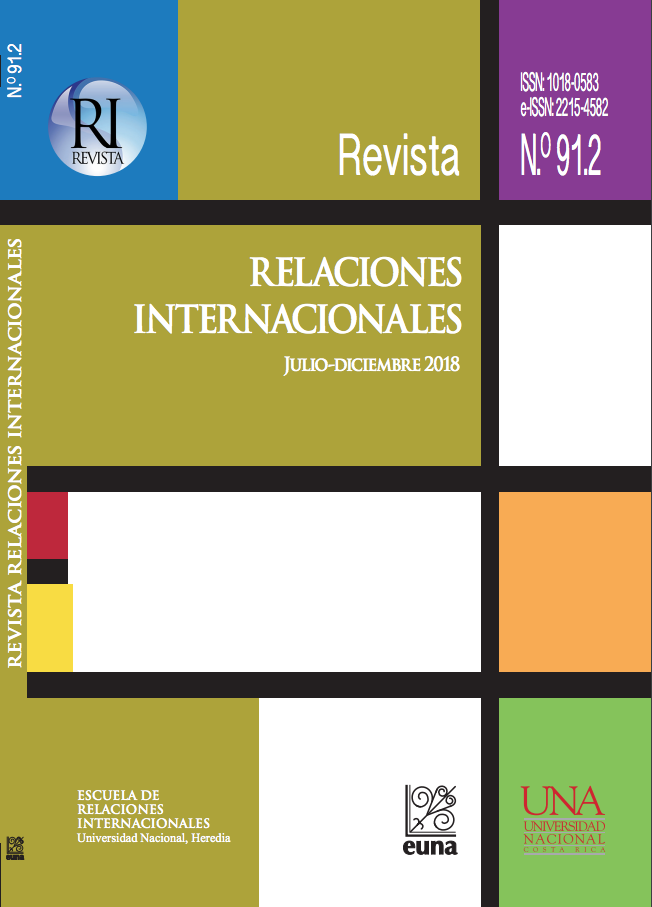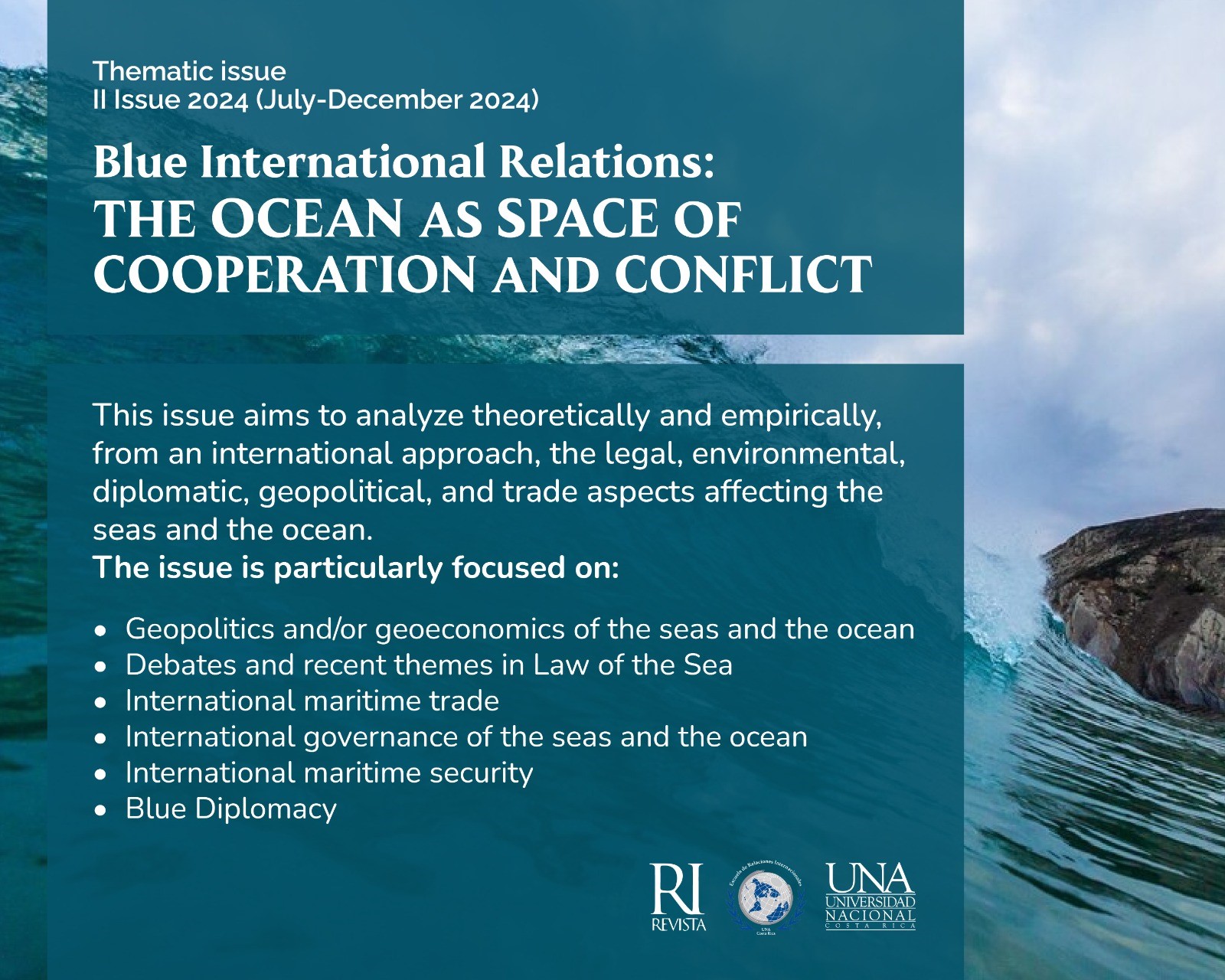Geopolitics in the Korean Peninsula
DOI:
https://doi.org/10.15359/ri.91-2.5Keywords:
Korean Peninsula, Geopolitics, Globalization, Global Risk, United States, China, RusiaAbstract
The article examines and analyzes geopolitics in the Korean Peninsula, analytically linking the global, interregional, regional and state elements, in such a way that it explains how global power is being reconfigured geopolitically and how the United States, Russia, China are repositioning in Asia Pacific, in order to have greater interference and control, taking advantage of the loss of leadership of the United States in the region to position itself as world leaders. On the other hand, it addresses the approaches between North Korea and South Korea for a possible solution to the conflict. These dynamics have an impact on the reconfiguration of the global order, which tends to be multipolar, but at the same time increases instability, global risk and violence, calling into question global governance.
References
Beck, U. (2007). La sociedad del riesgo mundial. En busca de la seguridad perdida. Barcelona, España: Paidós.
Berry, W. (2008). Global Security Watch Corea. A reference handbook. USA: Praeger Security International.
Coats, D. (2018). Statement for The Record Worldwide Threat Assessment of the Us Intelligence Community. USA: Office of the Director of National Intelligence. Recuperado de: https://www.odni.gov/files/documents/Newsroom/Testimonies/2018-ATA---Unclassified-SSCI.pdf. Consultado el 28 de febrero de 2018.
Congressional Research Service (2018). North Korea: U.S. Relations, Nuclear Diplomacy, and Internal Situation. USA:Prepared for Members and Committees of Congress. Recuperado de: https://fas.org/sgp/crs/nuke/R41259.pdf. Consultado el 10 de octubre de 2018.
Cumings, B. (2015). Getting North Korea wrong. Bulletin of the Atomic Scientists, vol. 71, no. 4, pp. 64-76. Recuperado de: http://dx.doi.org/10.1177/0096340215590794. Consultado el 10 de julio de 2018.
Cumings, B. (2007). ¿Por qué Corea del Norte no colapsó? Y ¿por qué muchos estadounidenses influyentes piensan que debería haberlo hecho?. Estudios, núm. 20, otoño-primavera, pp. 101-123.
Delage, F. (2005). La nueva geopolítica asiática. Anuario Asia Pacífico 2005. Madrid, España: Fundación CIDOB/Real Instituto Elcano/Casa Asia, pp. 15-23. Recuperado de: http://www.anuarioasiapacifico.es/pdf/2005/004Fernando_delage.pdf. Consultado el 10 de agosto de 2018.
González, A. (2005). Asia Oriental en 2005: auge internacional, tensión política. Anuario Asia Pacífico 2005. Madrid, España: Fundación CIDOB/Real Instituto Elcano/Casa Asia, pp. 25-33. Recuperado de: http://www.anuarioasiapacifico.es/pdf/2005/004Fernando_delage.pdf. Consultado el 5 de agosto de 2018.
Ianni, O. (1999). La era del globalismo. México: Siglo XXI.
Kim il Sung (1975). Obras escogidas VI. Pyongyang, Corea: Ediciones en Lenguas Extranjeras Pyongyang.
Lacoste, Ý. (2009). Geopolítica: la larga historia del presente. Madrid, España: Síntesis.
Mahan, A. (2007). Influencia del poder naval en la historia. Madrid, España: Ministerio de Defensa.
Márquez, F. (2017). Capítulo decimocuarto. La península coreana: el conflicto que nunca cesa. Panorama geopolítico de los conflictos 2017. Madrid, España: Instituto Español de Estudios Estratégicos/Ministerio de Defensa, pp. 339-368.
Solórzano, O. (2016). Respuestas y desafíos de la sociedad global en la era de la globalización. Ad Universa Revista de Relaciones Internacionales, 01(13):64-77.
Downloads
Published
How to Cite
Issue
Section
License

Revista de Relaciones Internacionales por Universidad Nacional de Costa Rica está bajo una Licencia Creative Commons Atribución-NoComercial-SinDerivar 4.0 Internacional








1.png)







3.png)
